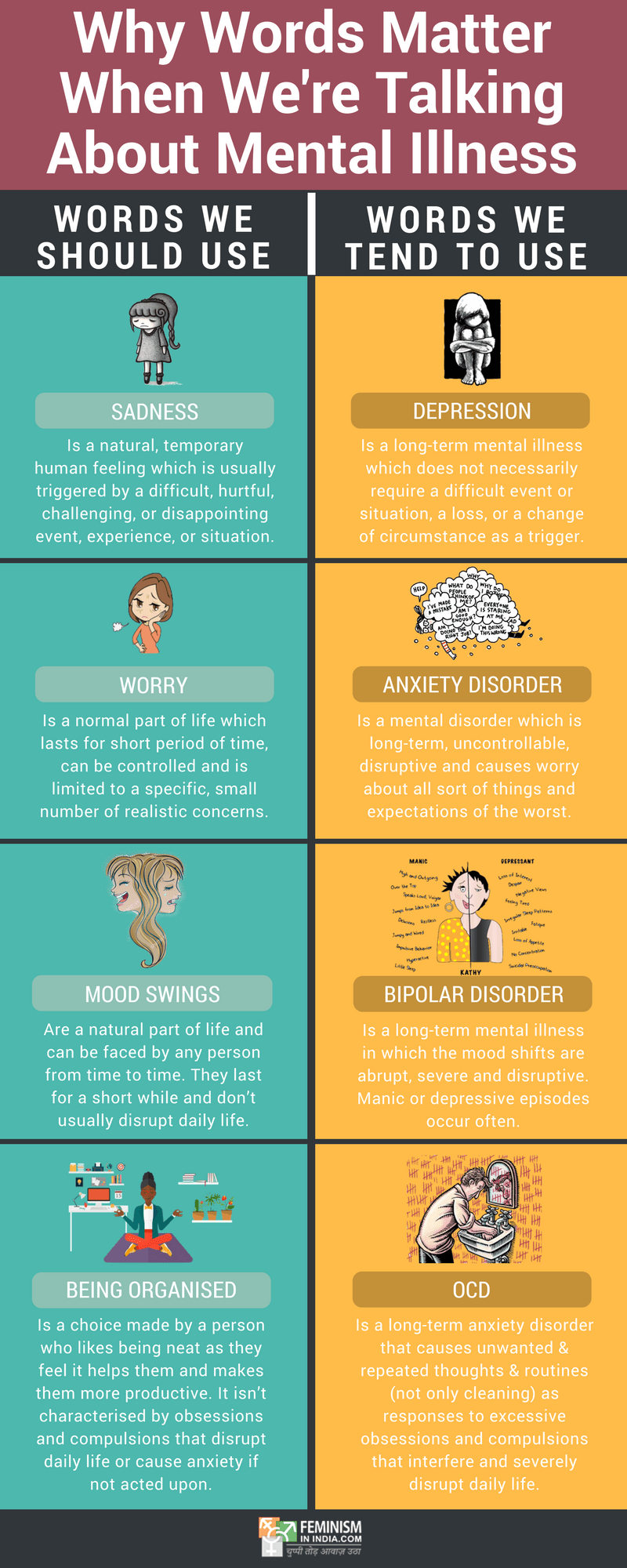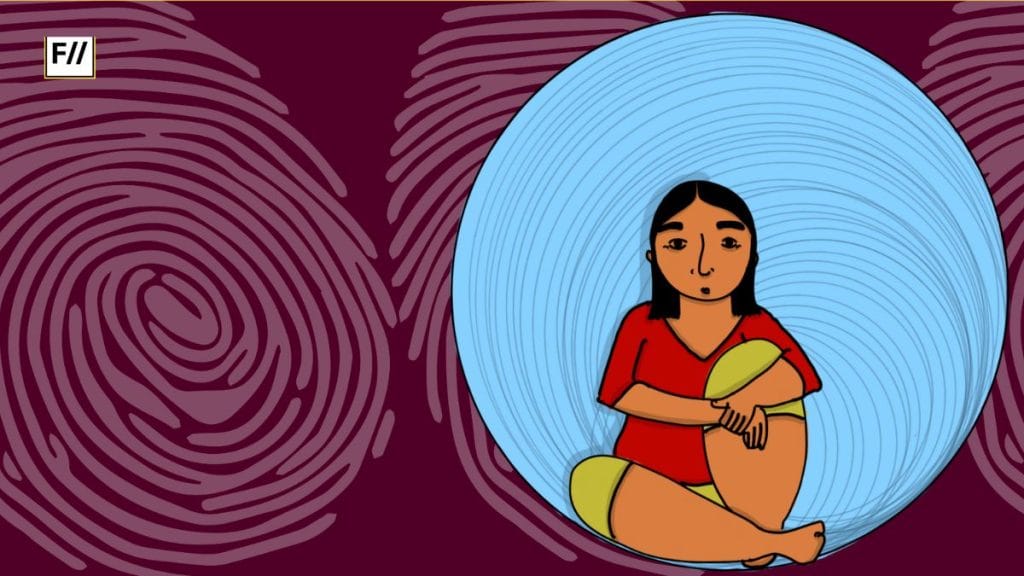It is not uncommon to hear someone around us complain they almost had an “anxiety attack” over something or they were “depressed” after watching a film or reading a book. However, we often remain contently ignorant of the actual meaning behind these words and the serious mental illnesses they refer to.
This ignorance, most of the times, comes from the presumption that these words are merely used to lay emphasis or exaggerate a natural human emotion or habit. For instance, the word “depressed”. That film you saw? That book you read? It most likely didn’t make you feel depressed, the emotion that you felt is called sadness, and just that.
Also Read: Why We Must Learn To Distinguish Between Sadness And Depression
It is important for all of us to pay attention to the real usage of these words because casually throwing them around trivialises the mental illness they refer to. It dilutes the meanings behind these words until they become just another human emotion. But that’s the thing. They are not just another human emotion. They’re a mental illness that people suffer from and our ignorance regarding the usage of these words disrespects their sufferings.
It also adds to the false assumption several people seem to have that “mental illnesses aren’t real” or that “it’s all in the head”. Mental illnesses are very real and people suffering from them not only face the illness but also the stigma of the society. To top it all, they surely don’t need people around them to undermine their distress by casually pronouncing that they suffer from the illness too, because let’s be real, they don’t. Because having mood swings doesn’t make you “bipolar” and simply being super organised doesn’t mean you have “OCD”.
Also Read: Why You Need To Mind Your Language While Talking About Mental Illnesses
Before using these words at our liberty, we ought to make sure that the meaning behind them and their reference to serious mental health conditions aren’t getting diluted. Here’s a list of few words that will help you understand the difference between natural human emotions or habits and mental illnesses. Because words matter. Let’s all be more sensitive and supportive towards mental health issues.

Resources
- Psychology Today
- Healthline
- Helpguide.org
- Dr. Christina Villarreal
- Psych2Go
- Psych Central
- Everyday Health
- Psychology Today – Obsessive-Compulsive Disorder
Sources for Graphics
- Deviant Art
- Garner-Mitchell Illustration&Design
- WeClipart
- PlayGround
- ShutterStock
- Tammy Farrington
- The New York Times
- Trello
About the author(s)
Shagun Gupta is a fiction enthusiast and an amateur photographer, currently embarking on a writing career after having recently earned her post-graduate degree in Mass Communication.




